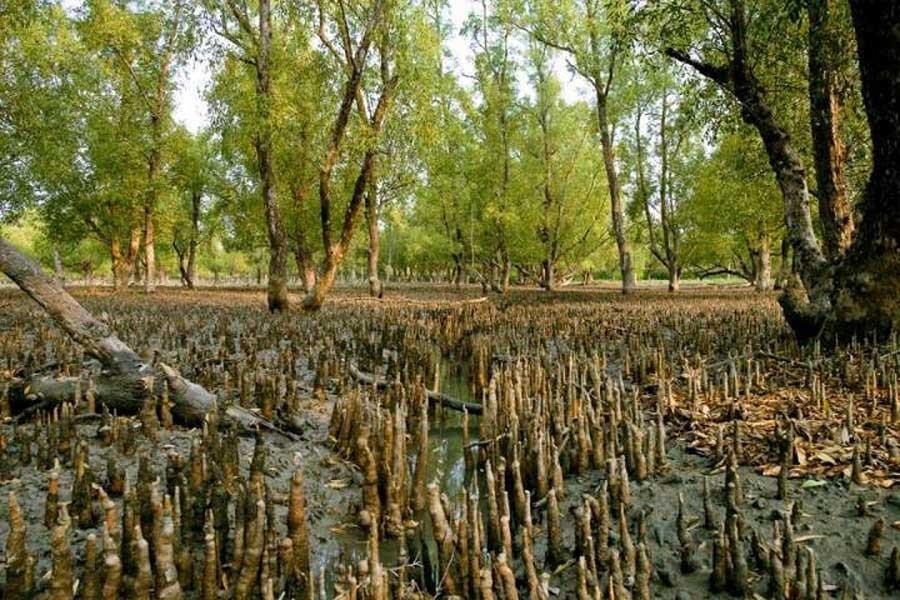COP30 KICKS OFF: Call for mobilising finance for forest protection and climate resilience
Concrete implementation of previously set climate goals high on agenda

Published :
Updated :

The 30th edition of the United Nations' Climate Change Conference, known as COP30, kicked off in Belém, Brazil, on November 10 (Monday), bringing together global leaders, activists, and experts in a crucial gathering to address accelerating climate change.
Under Brazil's presidency, COP30 will revolve around an action agenda of 30 key goals, each driven by an 'activation group' tasked with scaling up solutions.
The effort has been dubbed a mutirão - an indigenous word meaning "collective task" - reflecting Brazil's push to spotlight Indigenous leadership and participation at the conference and in the global fight against climate change.
The government says it wants all sectors - from Indigenous communities to business leaders - to help deliver on past climate promises.
This edition holds significant symbolism and urgency as it takes place on the doorstep of the Amazon rainforest, highlighting the critical role the world's largest tropical forest plays in stabilizing the global climate.
COP30 represents a milestone in global climate diplomacy, reflecting 30 years of international efforts to curb greenhouse gas emissions and tackle global warming.
The conference gathers the parties to the UN Framework Convention on Climate Change (UNFCCC) -- countries that committed decades ago to collective climate action under the principle of "common but differentiated responsibilities.
While all nations are urged to combat climate change, developed countries are expected to lead in emissions reductions and finance climate solutions due to their historical contribution to the problem.
Brazil's choice of Belém -- a gateway city to the Amazon rainforest -- underscores the vital importance of tropical forests in absorbing carbon dioxide and regulating the planet's climate.
This backdrop highlights ongoing threats from deforestation driven by agriculture, mining, and fossil fuel extraction, along with the increasing impact of wildfires.
The summit's agenda focuses on delivering concrete implementation on climate goals set at previous COPs, with COP30 billed as the "Implementation COP."
Central issues include the mobilization of finance for forest protection and climate resilience, and a renewed emphasis on adaptation strategies for countries vulnerable to climate impacts.
For the first time in UN climate talks, COP30 officially acknowledges that the world has already missed the target of limiting warming to 1.5 degrees Celsius above pre-industrial levels -- a milestone signaling profound climate risk ahead.
Brazilian President Luiz Inácio Lula da Silva, opening the summit, called for collective mobilization of resources to stop tropical deforestation and urged countries to step up ambition and action. Lula stressed the importance of honoring past commitments rather than making unfulfilled pledges, signaling stronger accountability measures at this COP.
A key feature of COP30 is the enhanced role of indigenous groups, whose traditional knowledge and stewardship have proven crucial for forest conservation.
The conference places special emphasis on indigenous rights and their inclusion in decision-making processes, recognizing indigenous peoples as frontline defenders of the Amazon and other vulnerable ecosystems.
This inclusivity extends to civil society and youth activists, whose continued pressure shapes global climate discourse but also reflects growing impatience with slow political progress.
Among COP30's anticipated outcomes is the launch of new funding mechanisms aimed at protecting tropical forests globally, a critical measure to stem carbon emissions associated with deforestation and degradation. Brazil advocates for international finance to address forest conservation as an integral part of the global climate solution.
Other initiatives focus on digital and public infrastructure for better climate monitoring, transparency, and coordination of climate finance, as Brazil pushes for real-time systems to ensure accountability and optimize investment impact.
The summit, slated to be concluded on November 21, is also expected to discuss mechanisms for adaptation financing to support countries hit hard by climate disasters like floods, droughts, and extreme heat. Many developing countries have repeatedly flagged a funding gap that undermines their ability to build resilience, a topic brought forward forcefully in pre-summit dialogues.


 For all latest news, follow The Financial Express Google News channel.
For all latest news, follow The Financial Express Google News channel.